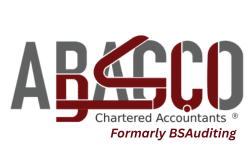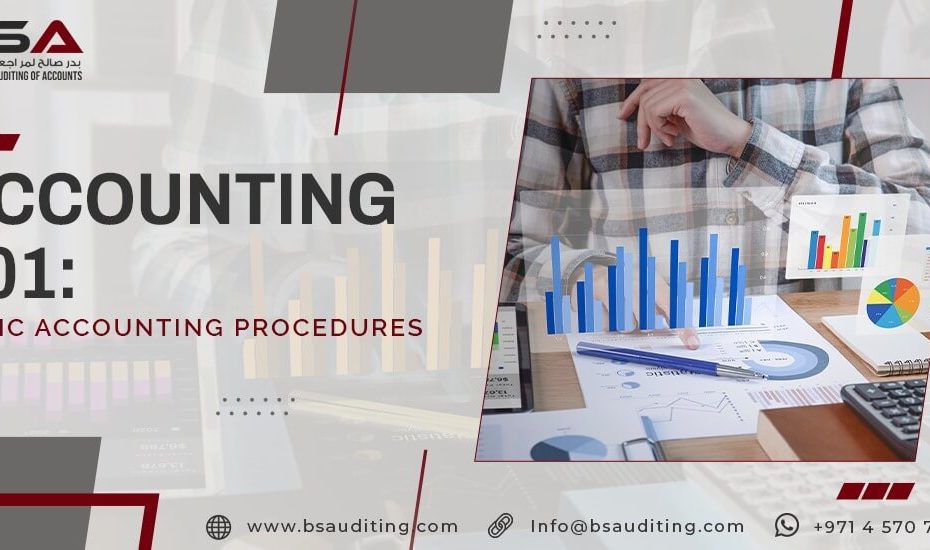People usually perceive accounting as a dull task with endless calculations and monotonous procedures. The actual processes of accounting are different from these notions. In reality, the basic accounting procedures involve an array of tasks that are both interesting and challenging. They are also technical and require both skill and expertise, and are not like children’s games.
The duties and responsibilities of an accountant vary throughout the day. However, in accounting, some actions are constant and are performed by all accountants regularly. We look into these basic procedures and how accountants carry them out.
Obtaining Financial Records
In every accounting system, financial records are essential. The process of collecting accounts information is one of the basic accounting procedures upon which all other processes are based. These records provide insight into business operations and where its assets are invested. All income and spending should be recorded in some fashion, whether physically, electronically, or both, for small and large enterprises.
Cash register tapes, invoices, incoming bills, salary records, tax forms, and travel receipts are all important financial papers. Financial documentation can come from a wide variety of sources and workers. For the efficient performance of a company, it is crucial to create procedures to guarantee that these documents are sent to the central accounting department on time.
Transactions Posting
After getting access to accounts, accountants post these transaction details in their records and journals. Accountants are used to entering transactions manually into the different accounts in the company’s accounting system using financial records. While this is still true to some extent, several companies have used technology solutions to automate transaction posting.
For example, automatic ordering software can be set up to modify the accounts in the accounting system over the business network. Accountants in this situation utilize financial papers to check accounting records and look into any irregularities. An automated system is effective for quick data entry and easy availability of required information when and where needed.
Reconciliation of Accounts
Account reconciliation involves comparing two accounts side to side to look for any irregularities or differences. This procedure ensures accuracy and consistency in a financial record. Accounting departments check their accounts against external records regularly. Reviewing internal records of business assets against a bank account, investment portfolio statements, and checking accounts payable records against suppliers’ records, can alert accounting staff to any discrepancies.
While this may seem simple, account reconciliation requires a lot of attention to detail, accuracy, and meticulous concentration.
Analyzing Payable And Receivable Accounts
Analysis and compilation of payable and receivable accounts is a basic accounting procedure where an accountant organizes a company’s general ledger for better insight and future strategizing. All money owing by an organization to its suppliers and lenders is accounted for in accounts payable. Accounts receivable is the polar opposite of accounts payable, and it includes all money owed to the company by customers and other creditors. A comprehensive accounting system includes mechanisms for tracking account payable and receivable due dates and statuses, as well as the ability to automatically pay bills on time or send alerts to delinquent account holders.
While this task was carried out manually in the past, several technologies aid with this procedure now. However, like other procedures, this one also requires attention that only an accountant can pay.
Reporting Both Internally And Externally
The primary job of an accounting system is to provide reports for management, investors, and other firm stakeholders. Internal reports help managers make better decisions by presenting operational data in a strategic context, allowing them to recognize patterns and opportunities for development. Internal records also come of use during audits, where auditors look keenly at all financial transactions. External financial reports are crucial to maintain the client’s trust and address any issues with stakeholders.
Throughout the year, publicly listed firms must file a variety of financial reports to federal authorities. However, even privately held businesses may be compelled to produce reports for external stakeholders like lenders and private investors.
Conclusion
All individuals associated with the field of accounting perform these tasks, regardless of the size of business or type of service it renders. An expert and skilled accountant can make these tasks look like a piece of cake. When done effectively, these procedures contribute immensely to the prosperity of the company.
BS Auditing is an accounting firm with the best team of accountants proficient in their respective fields. Their responsibility as accountants and professionalism has earned them a respectable reputation in the field. Book your consultation today by calling us at+971 4 570 7357. Feel free to contact us.


